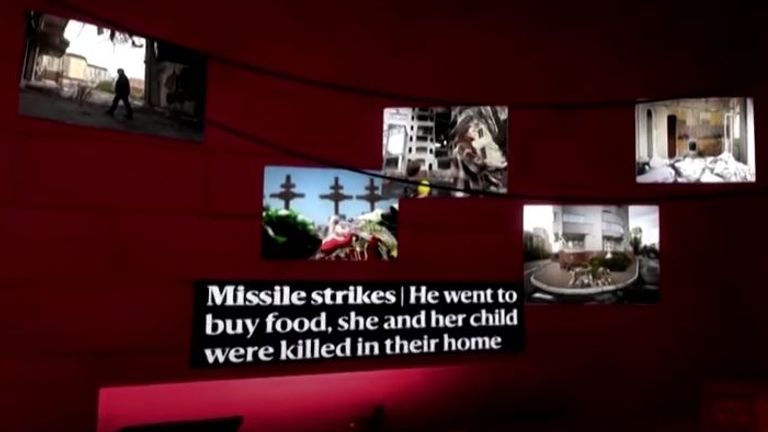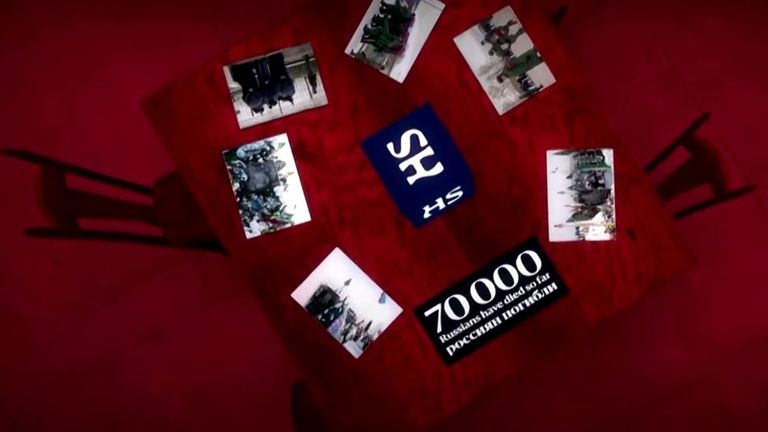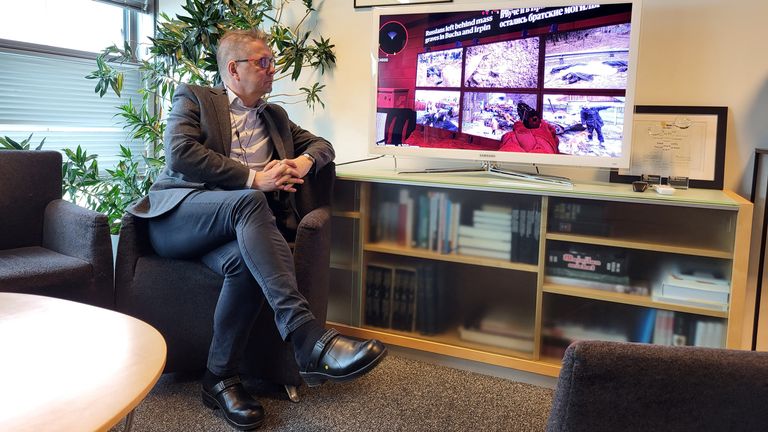Finland’s largest daily newspaper is fighting back against Russia’s media restrictions by hiding news about the war in Ukraine in a secret room within a video game.
Helsingin Sanomat’s editor-in-chief Antero Mukka said the paper had to get creative in trying to breach the restrictions and decided to conceal articles in the shooter game Counter-Strike, which is popular among young Russian men.
Ukraine war latest: US ‘definitely’ behind Kremlin attack, Russia claims
Russia has cracked down on independent journalism by banning free reporting and denying Russians access to media content produced abroad since Moscow launched what it calls its “special military operation” in Ukraine.
“As we have been widely concerned about the press freedom situation and freedom of speech in Russia, we decided that maybe it’s possible to find some new channels to provide Russian audience with some reliable, independent journalism for example about the situations in Ukraine,” Mr Mukka told Reuters news agency.
Counter-Strike, released by US-based private gamemaker Valve Corporation in 2012, ranks among the world’s top 10 most popular PC games, according to research firm Newzoo’s data.
The Finnish paper created its own map war-torn Slavic city, naming it “voyna”, the Russian word for war – the use of which is prohibited in Russia in reference to the conflict in Ukraine.
“You will find there a secret room, and there we provide them our own articles, our own documentation, for example, about massacres in Bucha and Irpin, and also the casualties of the Russian army there in Ukraine,” said Mr Mukka.
He said the paper had not sought Valve’s permission, as the game allows users to create and add their own content to its platform.
“If some young men in Russia, just because of this game, happen to think for a couple of seconds what is going on in Ukraine then it’s worth it,” he added.
Read more world news:
Boy who shot dead eight children at Belgrade school ‘had kill list’
The booming trade fuelling a US drug epidemic and deadly street war
Palestinian gunmen killed weeks after shooting three British-Israeli women dead
Russia also outlawed the act of discrediting the armed forces shortly after it invaded Ukraine last February.
A father was detained and his 13-year-old daughter taken into state care after she drew a picture showing Russian missiles raining down on a Ukrainian mother and child, prompting the head of the school to call the police.
Alexei Moskalyov, who was sentenced to two years in a penal colony on charges of discrediting the armed forces, fled from house arrest before the verdict was delivered.
When an official announced in court he had fled, some in attendance shouted: “Bravo!”



